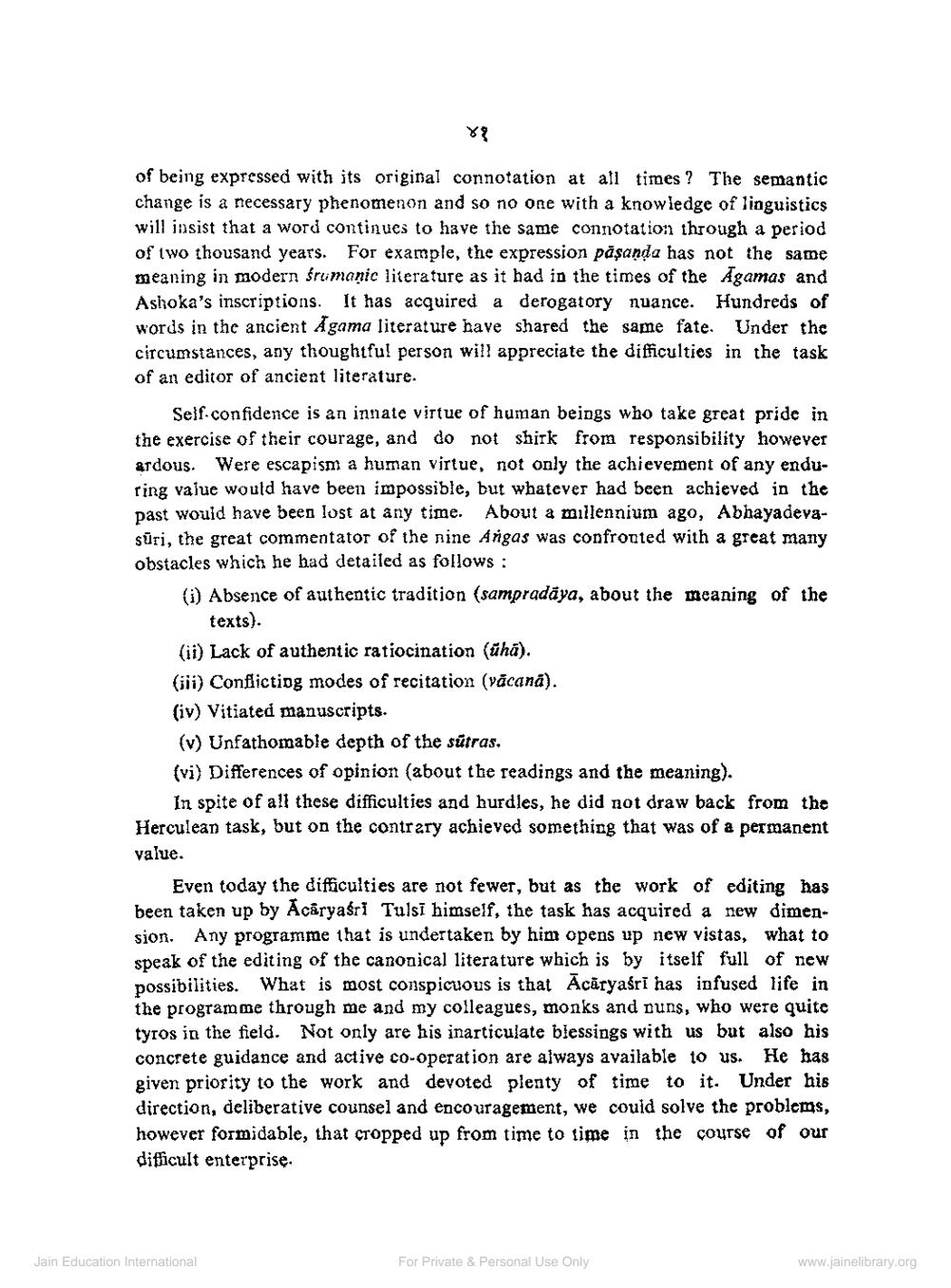________________
8?
of being expressed with its original connotation at all times? The semantic change is a necessary phenomenon and so no one with a knowledge of linguistics will insist that a word continues to have the same connotation through a period of two thousand years. For example, the expression păṣaṇḍa has not the same meaning in modern frumonic literature as it had in the times of the Agamas and Ashoka's inscriptions. It has acquired a derogatory nuance. Hundreds of words in the ancient Agama literature have shared the same fate. Under the circumstances, any thoughtful person will appreciate the difficulties in the task of an editor of ancient literature.
Self-confidence is an innate virtue of human beings who take great pride in the exercise of their courage, and do not shirk from responsibility however ardous. Were escapism a human virtue, not only the achievement of any enduring value would have been impossible, but whatever had been achieved in the past would have been lost at any time. About a millennium ago, Abhayadevasuri, the great commentator of the nine Angas was confronted with a great many obstacles which he had detailed as follows:
(i) Absence of authentic tradition (sampradaya, about the meaning of the texts).
(ii) Lack of authentic ratiocination (uh).
(iii) Conflicting modes of recitation (vdcand).
(iv) Vitiated manuscripts.
(v) Unfathomable depth of the sutras.
(vi) Differences of opinion (about the readings and the meaning).
In spite of all these difficulties and hurdles, he did not draw back from the Herculean task, but on the contrary achieved something that was of a permanent value.
Even today the difficulties are not fewer, but as the work of editing has been taken up by Acaryasri Tulsi himself, the task has acquired a new dimension. Any programme that is undertaken by him opens up new vistas, what to speak of the editing of the canonical literature which is by itself full of new possibilities. What is most conspicuous is that Acaryaśri has infused life in the programme through me and my colleagues, monks and nuns, who were quite tyros in the field. Not only are his inarticulate blessings with us but also his concrete guidance and active co-operation are always available to us. He has given priority to the work and devoted plenty of time to it. Under his direction, deliberative counsel and encouragement, we could solve the problems, however formidable, that cropped up from time to time in the course of our difficult enterprise.
Jain Education International
For Private & Personal Use Only
www.jainelibrary.org




